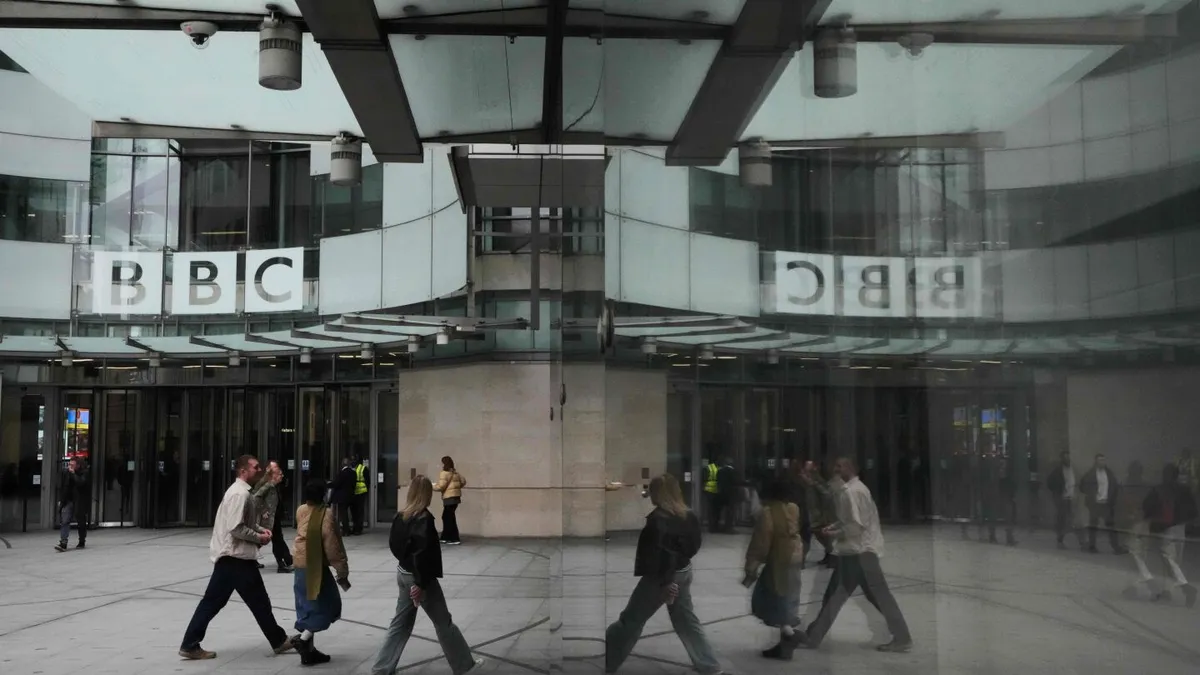
In a surprising turn of events, President Donald Trump has threatened to file a billion-dollar lawsuit against the BBC, raising questions about the future of the British broadcaster. However, experts suggest that this legal threat may be more of a bluff than a viable legal action. The controversy stems from a documentary that edited Trump's speech on January 6, 2021, the day when a mob of his supporters stormed the U.S. Capitol.
The BBC's "Panorama" series aired a documentary titled "Trump: A Second Chance?" just days before the 2024 U.S. presidential election. The film included a controversial edit of Trump's speech, combining quotes from two different parts of the speech, which gave the impression that he was inciting violence. Notably, the edit omitted a part where Trump urged his supporters to protest peacefully. Following backlash, BBC Chairman Samir Shah issued an apology, acknowledging that the edit created a misleading impression of a direct call for violence.
Experts believe that Trump faces significant hurdles if he wishes to pursue legal action against the BBC. Firstly, the one-year deadline for filing a lawsuit in England has already expired, which would likely prevent him from taking action in the U.K. even if he were to overcome this barrier, libel awards in the High Court typically do not exceed 100,000 pounds (approximately $132,000). However, Trump could still explore defamation claims in various U.S. states, as indicated by his lawyer's reference to Florida law in correspondence with the BBC.
Despite his threats, the reality of winning a defamation lawsuit is complex. Trump's lawyer must demonstrate that the documentary harmed Trump's reputation, particularly given that the BBC program was not aired in the U.S. and, thus, American audiences could not have been influenced by it. Legal experts argue that it would be challenging for Trump to prove that his reputation suffered additional damage when it was already deeply affected by the events of January 6.
Throughout his career, Trump has had a contentious relationship with the media, often labeling outlets as "fake news." He has previously pursued lawsuits against various media organizations, sometimes resulting in multimillion-dollar settlements. For example, in July, Paramount agreed to pay $16 million to settle a lawsuit related to a segment featuring former Vice President Kamala Harris. Similarly, ABC News settled a defamation lawsuit for $15 million due to inaccuracies presented by anchor George Stephanopoulos.
Trump's lawyer, Alejandro Brito, has demanded the BBC issue an apology and provide a "full and fair" retraction of the documentary, alongside compensation for the alleged financial and reputational harm. The letter from Brito specified "no less than" $1 billion, emphasizing the seriousness of the claim. If the BBC does not comply with the demands by a specified deadline, Trump's lawyer indicated that they would pursue legal action.
While some legal experts dismiss Trump's claims as unlikely to succeed, others suggest that his approach may be a strategic move to extract a settlement from the BBC. London lawyer David Allen Green noted that the letter did not clearly articulate any actual harm to Trump, but it could still serve as a leverage point given the nature of the edit. Additionally, media lawyer Mark Stephens commented on the potential ramifications for the BBC, suggesting that if Trump were to win a significant payout, it could jeopardize the broadcaster's financial stability.
As the situation unfolds, it remains to be seen whether Trump will follow through with his legal threat against the BBC. While the prospect of a billion-dollar lawsuit raises eyebrows, the challenges he faces in court are substantial. As both sides navigate this complex legal landscape, the implications for media freedom and journalistic integrity will likely be scrutinized in the months to come.